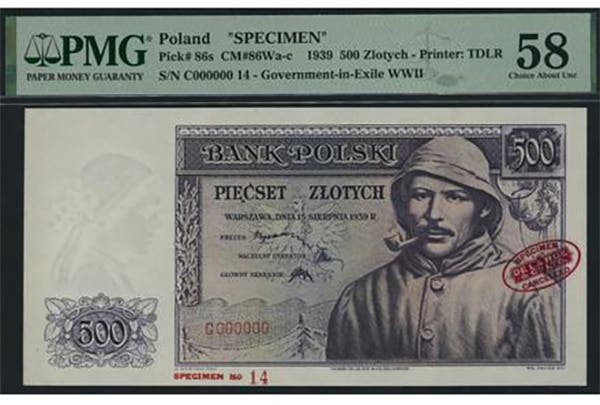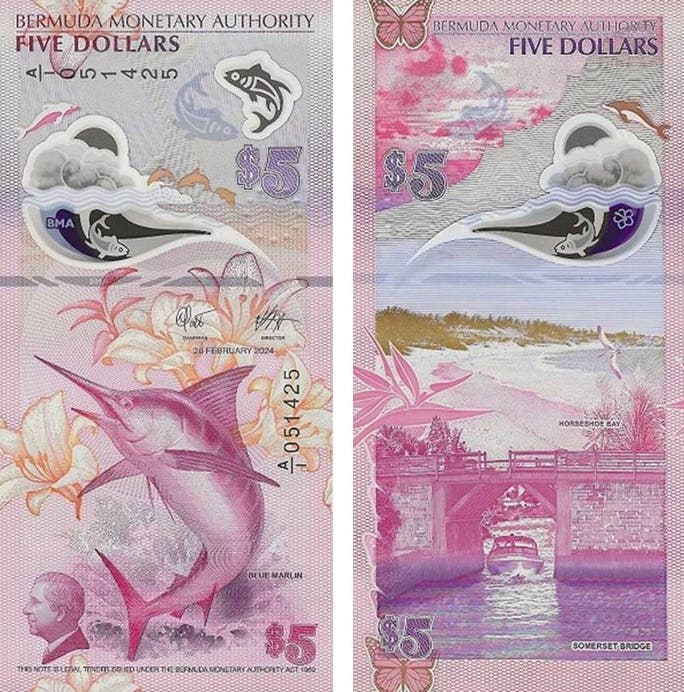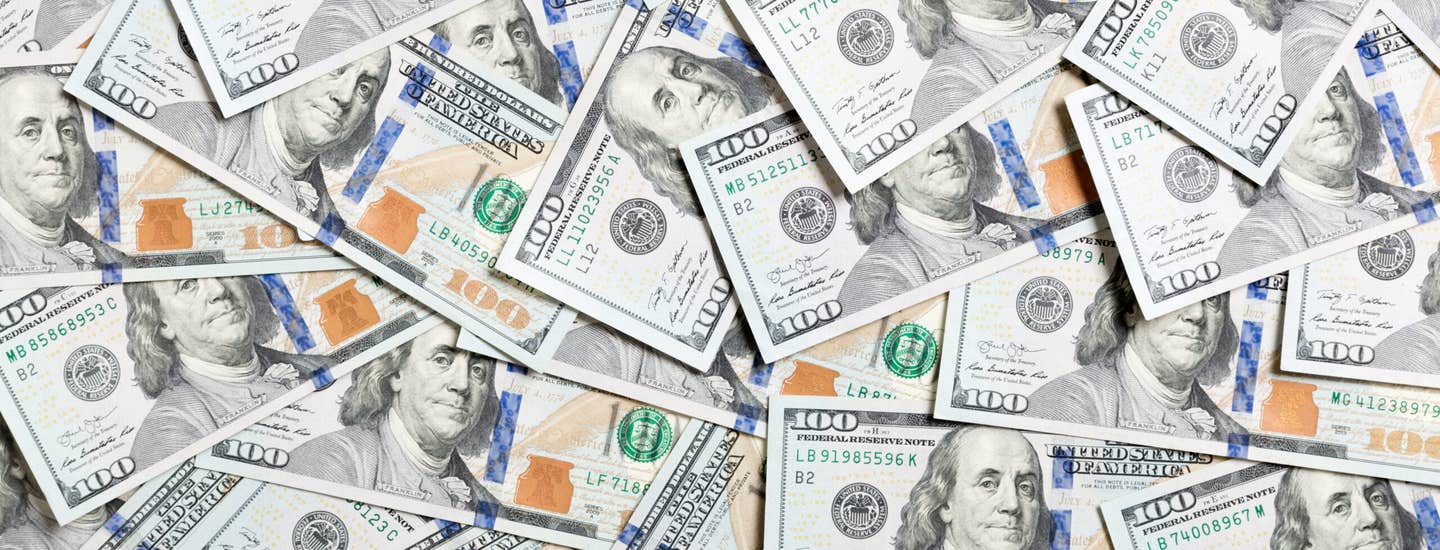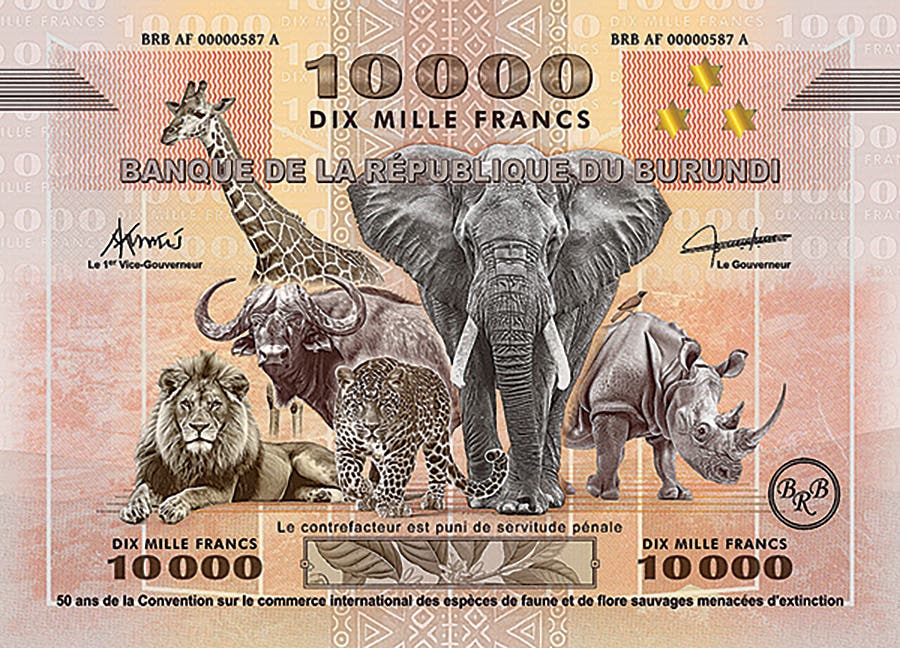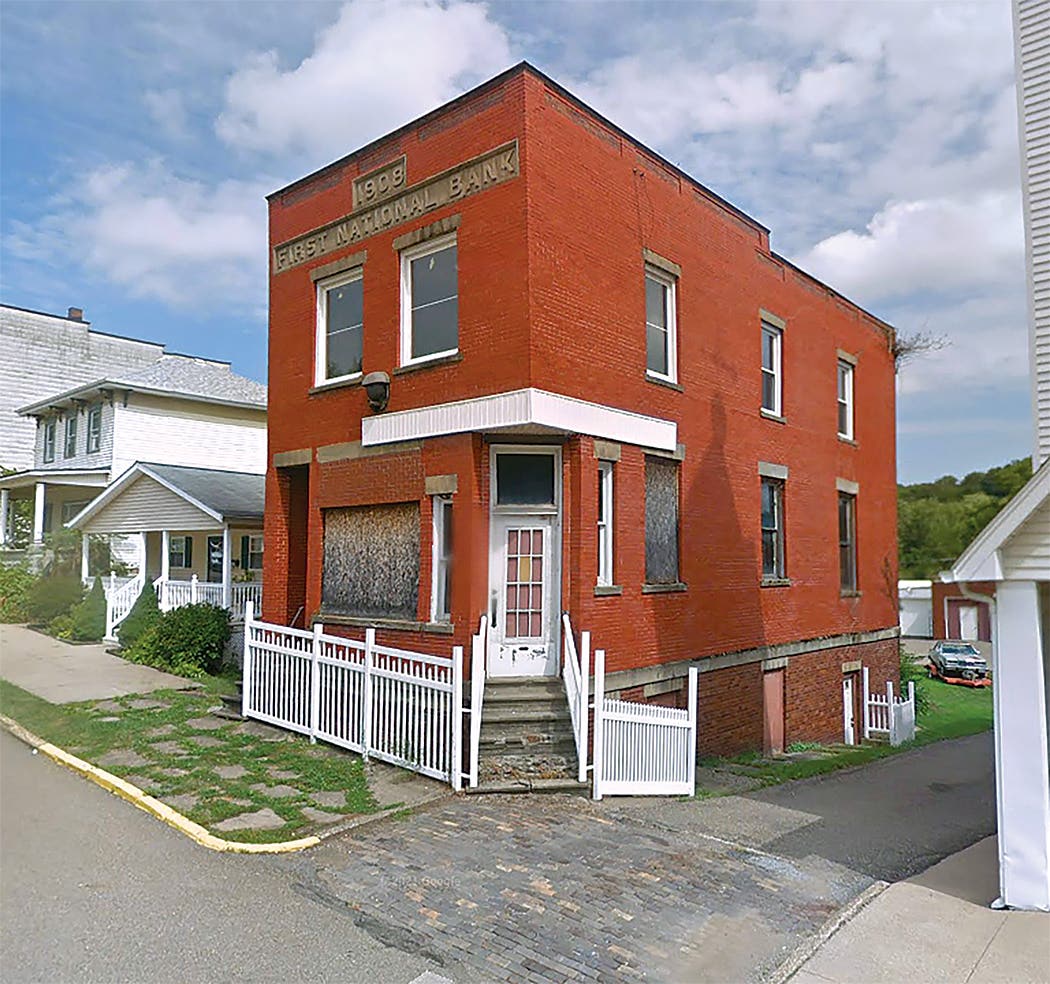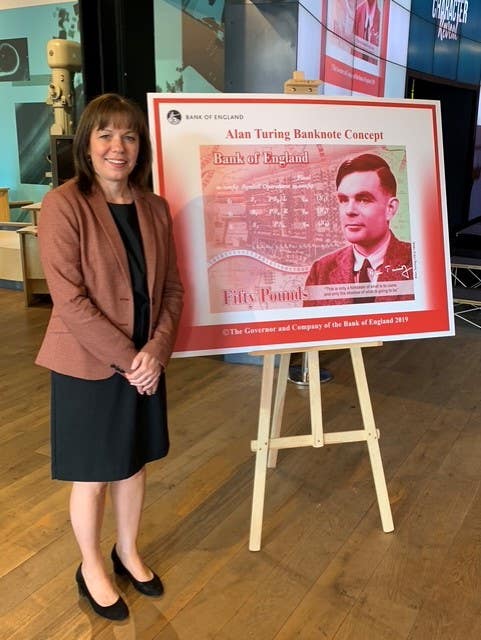BoE £100 Realizes $82,339
Spink’s sale of the remarkable Lou Manzi and A.J. Simms collections of banknotes was held in London on May 9. It has been a while since such a considerable number…
Spink’s sale of the remarkable Lou Manzi and A.J. Simms collections of banknotes was held in London on May 9. It has been a while since such a considerable number of rare and high-grade British notes have appeared on the market at the one time. The results make clear that numerous collectors with large quantities of disposable income were ready and waiting to snaffle a large slice of the spoils.
Between them the two collections brought 300 notes to the block. Of these, 22 realized over $10,000 [£8,333] apiece. The total realized for the 215 lots of the Manzi collection was $937,626 [£738,288] and for the 84 Simms’ notes $251,506 [£198,036]. Clearance rates were 93% and 92% respectively, testifying to the exceptional quality of the material on offer.
Star of the show was a Bank of England Thomas Rippon £100 drawn on Manchester and dated 23 July 1832 (P-216; EPM B202a). All Rippon notes are rare. Just two examples of the £100 are believed extant with the present note likely the only one in private hands. Further, the note came in a more than acceptable PMG 20 Very Fine.
It had always been anticipated that such a classic rarity would do well and bidding proved sufficiently strong to generate more than a little excitement in the room. At hammer fall this most desirable gem had realized $82,340 [£64,800], including BP, on a £35,000-45,000 estimate.
A little way behind in the price stakes were two extremely rare BoE £1000 notes both drawn on London. The first was dated 15 May 1925 and signed by Chief Cashier Cyril Patrick Mahon (P-327; EPM B222a). Graded PMG 35 Choice Very Fine it easily made $61,064 [£48,000]
The second from 20 November 1936 was signed by Kenneth Oswald Peppiatt (P-341; EPM B247). It came in a most desirable PMG 50 About Uncirculated and on an estimate of £18,000-22,000 raced away to find a new home for $54,957 [£43,200].
The arrival on the block of one of only two extant BoE £100s issued from the Portsmouth branch of the bank and dated 27 March 1912 provoked considerable interest (P-308s; EPM B208fi). This note had been presented to a high-ranking bank official at the time of the closing of the Portsmouth Branch. As it is forbidden to give cash to a BoE official it had been overprinted 'SPECIMEN' in red.
Given its PMG grade of 63 EPQ Choice Uncirculated it had no problems taking $53,429. [£42,000].
The high rolling rarities did not all come from the BoE. Among the British Treasury issues of WWI was an undated Bradbury 10 shillings with serial number A/1 000001 issued on 7 August 1914 (P-346; EPM T9). The historic note’s desirability was enhanced by its PMG 53 About Uncirculated grade and on a conservative estimate of £10,000-15,000 it took an extremely healthy $38,175 [£30,000].
Among older BoE issues an Abraham Newland £10 dated 13 March 1790 (P-170; EPM B200l) sold for $22,911 [£18,000]. All Newland notes are rare. The higher the denomination the greater the rarity which helps explain the price given the note’s PMG 10 Very Good grade.
Full catalog details and prices-realized are available from www.spink.com. A premium of 20% has been included in all prices shown. These have been converted at a rate of 1GBP = 1.27USD.



